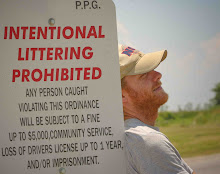 In the coming December issue of Z Magazine Will Parrish, Nick Robinson and I are publishing an in-depth article detailing the historic origins of anti-nuclear imperialism.
In the coming December issue of Z Magazine Will Parrish, Nick Robinson and I are publishing an in-depth article detailing the historic origins of anti-nuclear imperialism.We locate this strategy's intellectual and political foundations within several California based-institutions which are themselves deeply embedded in the Golden State's nuclear and arms manufacturing industries - thus the "nuclear nexus." We hope this piece isn't read as a conspiracy theory, but rather as a sociological account of how nuclear policy is made, by whom, and for what ends. This is power structure research.
From the weapons laboratories at Los Alamos and Livermore to the University of California, Stanford and its Hoover Institute, and corporations like Bechtel, we trace personal and institutional linkages developed over many decades and refashioned during the post-Cold War/9-11 transition. The current fad among elites to speak about nuclear disarmament is, we claim, part of a coherent strategy to de-emphasize nuclear weapons in US military force projection, so as to actually strengthen the United States in global diplomatic and military confrontations. Many moderates and conservatives will probably ask, "isn't this a good thing?" We think not. We identify the US as an empire and believe that the healthiest outcome of its current crisis of legitimacy and power will be a controlled decline, including a numerical and qualitative reduction of its nuclear armaments.
Among our main goals in writing this article is an attempt to redirect the politics of the US antinuclear field. To date too many NGOs, academics, and grassroots activists have been far too eager and uncritical in their invocation of the Hoover Plan, now Obama's plan in gestation for "nuclear disarmament."
Specifically, too many opponents of nuclear weapons have given the weapons laboratories, military, and allied corporations far too much leeway in preempting any rational, democratic policy to downsize and disarm the arsenal. The nuclear complex has been modestly successful in recent years circumventing any possible democratic process by pursuing expensive, long-term infrastructural investments in the bombplex of the future. We hope that antinuclear forces will begin to care more about the concrete plans underway at LANL, LLNL, Sandia and other sites, and pay less attention to the simplistic and abstract musings of elder US imperialist-statesmen.

No comments:
Post a Comment